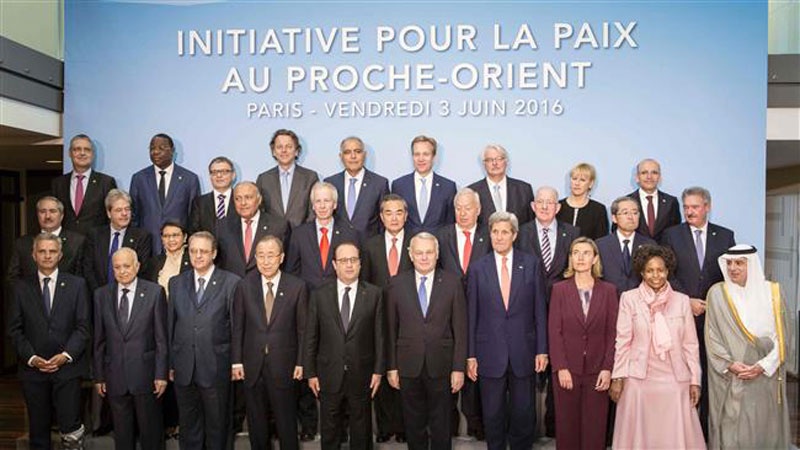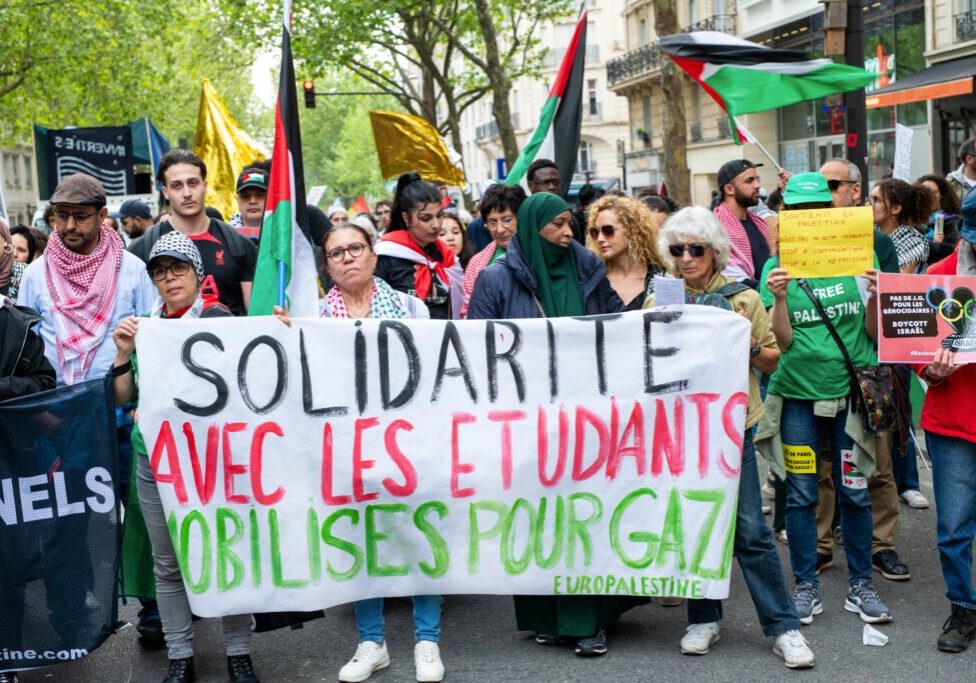Australia/Israel Review
Europa Europa: Paris’ unintended consequences
Jun 29, 2016 | Douglas Davis

Douglas Davis
Pity François Hollande. The French President’s country is beset by terrorism, his overseas military missions – in Libya, Mali and Syria – are in tatters, his labour unions are in full revolt, while his personal popularity ratings are at a record low of 13%. How to placate his domestic Muslim population, divert attention from his rioting workers, burnish his own diminished standing and restore la gloire de la France? As the floodwaters of the Seine threatened to drown the French capital and ISIS promised to wreck the Euro 2016 football tournament, the answer became obvious: convene a Middle East peace conference. And then compound the charade by not inviting the major protagonists, Israel and the Palestinians.
Not even a massive publicity blitz could salvage the event from utter irrelevance. The Russians, Germans and the British recognised the futility of the occasion and, sadly, discovered they had prior commitments that prevented attendance. Not so the indefatigable US Secretary of State, John Kerry, whose valiant efforts to broker a two-state deal collapsed under the weight of Palestinian intransigence in April 2014. While he agreed to attend the Paris meeting, though, a State Department spokesman warned that the US would effectively be a silent partner. It would not produce any specific proposals but would “listen to the ideas that the French and others may have.” In the event, Kerry refused to do anything but sign off on “a general, non-committal statement.”
And so, the Middle East Peace Conference – now an empty husk – was ridiculed as “an extended photo opportunity” in the words of the New York Times. It ended in ignominy after just three hours on a miserable Friday afternoon last month. A joint communiqué sounded a brave call for a negotiated solution leading to “two states, Israel and Palestine, living side by side in peace and security.” Not exactly the “wow” moment that Hollande was hoping for.
Never mind. The conference/initiative did produce one winner: the Palestinian leadership. Unable to take up the unconditional offer by Israeli Prime Minister Binyamin Netanyahu for direct peace talks anywhere, anytime, the Palestinian leaders continue to elude Israel’s offer by relying on the international community to ride to their rescue.
As they have repeatedly shown, the Palestinian leaders currently possess neither the psychological will nor the political ability to reach a deal which ends the conflict. At the same time, they know that in order to continue qualifying as the largest-ever per-capita recipients of international aid, they must demonstrate that they are prepared to travel hopefully in search of peace – in the certain knowledge that they will never arrive at the destination. Their strategy is thus to constantly seek to internationalise the conflict, a process Israelis intrinsically distrust.
All this was neatly demonstrated on the eve of the event. In an article in Le Monde, the chief Palestinian negotiator, Saeb Erekat, enthusiastically hailed the Paris gathering and asserted that the time for direct negotiations had passed. Nonsense, thundered Dore Gold, the Director-General of Israel’s Foreign Ministry: “The only way to make peace is through direct talks, without preconditions, with the support of Arab states, and not at conferences in Paris.”
There was a tantalising development behind Gold’s statement, repeated within days by Netanyahu, who also urged that the Arab states had a role to play in the peace-making process. “We have many shared regional interests with Arab states,” Netanyahu said last month, “and I think that one of those interests is to advance a real peace process between us and the Palestinians.”
It is, of course, one thing for the Palestinians to run rings around the Europeans – and even the Americans – when it comes to peace diplomacy. But there would be no easy escape for them if a peace process had the imprimatur of major Gulf states, whose goodwill is politically and economically vital to the Palestinians.
Clearly, the most important of those Gulf states, Saudi Arabia, is in difficulties right now. Politically, it feels abandoned by the United States in favour of arch-rival Iran. Militarily, it feels threatened by the nuclear ambitions of its Iranian Shi’ite neighbour, despite (or, perhaps, because of) a US-brokered deal that purports to blunt those ambitions. Economically, it is having to cope with steeply devalued oil prices, which has potentially dire implications for its rentier regime.
The past year has witnessed several brief public encounters between senior Israeli and Saudi officials. Such contacts, normally mundane in themselves, could be the superficial evidence of far more significant meetings, away from the cameras, on matters of vital mutual interest. Not least among these is how to counter what both countries perceive as an emerging existential threat from Iran.
At the same time, anonymous voices from Israel are now speaking of moderate Sunni states being prepared to modify the 2002 Saudi Peace Plan, removing demands for Israel to withdraw from the Golan Heights and omitting the implied “right of return” for Palestinian refugees. That could be a game-changer.
There is a long way to go to seal the deal. But we might yet witness the futility of French naiveté being trumped by the unintended consequences of Washington’s misplaced nuclear diplomacy with Teheran.
No one ever said diplomacy in the Middle East was a straightforward business.
Tags: Europe






